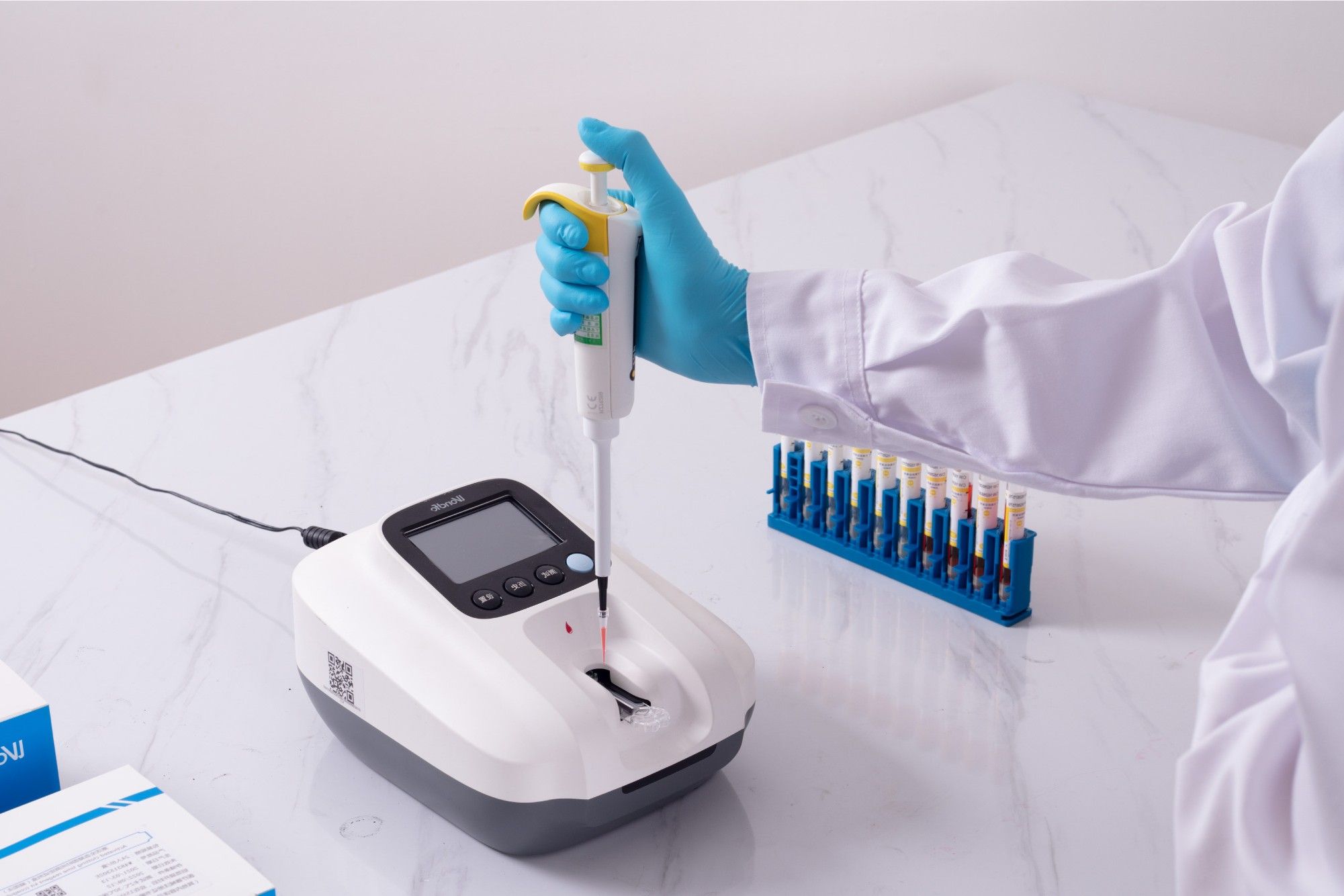
What is a coagulation analyzer? A coagulation analyzer is a medical device used to measure the blood's ability to form clots. This machine plays a crucial role in diagnosing bleeding disorders, monitoring patients on anticoagulant therapy, and ensuring safe surgical procedures. By analyzing various parameters like Prothrombin Time (PT) and Activated Partial Thromboplastin Time (aPTT), it helps doctors understand how well a patient's blood can clot. These devices are essential in hospitals, clinics, and laboratories. They provide quick, accurate results, which are vital for effective patient care. Understanding how a coagulation analyzer works can help you appreciate its importance in modern medicine.
What is a Coagulation Analyzer?
A coagulation analyzer is a medical device used to test the blood's ability to clot. These machines are crucial in diagnosing and managing bleeding disorders. Let's dive into some fascinating facts about these life-saving devices.
-
Coagulation analyzers measure the time it takes for blood to clot, known as Prothrombin Time (PT) and Activated Partial Thromboplastin Time (aPTT).
-
These devices help diagnose conditions like hemophilia, von Willebrand disease, and deep vein thrombosis.
-
Coagulation analyzers are used to monitor patients on anticoagulant therapy, ensuring their blood doesn't clot too quickly or too slowly.
How Do Coagulation Analyzers Work?
Understanding the mechanics behind these devices can be quite intriguing. They use various methods to measure clotting times and other related parameters.
-
Optical detection is a common method where the analyzer measures changes in light transmission through a blood sample.
-
Mechanical detection involves a small steel ball in the blood sample. The analyzer detects the ball's movement as the blood clots.
-
Electrochemical detection measures changes in electrical resistance as the blood clots.
-
Some advanced analyzers use multiple detection methods to ensure accuracy.
Types of Coagulation Analyzers
Different types of coagulation analyzers cater to various medical needs and settings.
-
Point-of-care (POC) analyzers are portable and used in emergency rooms or at a patient's bedside.
-
Laboratory-based analyzers are larger and more complex, used for detailed analysis in clinical labs.
-
Semi-automated analyzers require some manual intervention, while fully automated ones handle everything from sample preparation to result interpretation.
Importance in Medical Diagnostics
Coagulation analyzers play a vital role in medical diagnostics, impacting patient care significantly.
-
They help identify the cause of unexplained bleeding or bruising.
-
These devices are essential in pre-surgical screenings to ensure patients won't experience excessive bleeding during surgery.
-
Coagulation analyzers are used in managing liver disease, as liver function affects blood clotting.
-
They assist in diagnosing and monitoring disseminated intravascular coagulation (DIC), a serious condition affecting blood clotting.
Technological Advancements
Technology has significantly improved the functionality and accuracy of coagulation analyzers.
-
Modern analyzers offer faster results, sometimes within minutes.
-
Automated data management systems allow seamless integration with electronic health records (EHR).
-
Some analyzers now feature touchscreen interfaces for easier operation.
-
Remote monitoring capabilities enable healthcare providers to track patients' coagulation status from afar.
Challenges and Limitations
Despite their benefits, coagulation analyzers face certain challenges and limitations.
-
Sample quality can affect the accuracy of results. Hemolyzed or clotted samples may yield incorrect readings.
-
Interference from medications can alter clotting times, complicating the interpretation of results.
-
Cost can be a barrier for smaller clinics or hospitals in low-resource settings.
-
Regular maintenance and calibration are required to ensure accurate results.
Future of Coagulation Analyzers
The future holds exciting possibilities for coagulation analyzers, driven by ongoing research and technological advancements.
-
Artificial intelligence (AI) is being explored to enhance result interpretation and predictive analytics.
-
Wearable coagulation monitors are in development, potentially allowing continuous monitoring of patients at risk of clotting disorders.
-
Miniaturization of devices could make them more accessible and affordable.
-
Telemedicine integration may enable remote consultations and real-time monitoring.
Interesting Tidbits
Here are some lesser-known facts that might surprise you.
-
The first coagulation tests were developed in the early 20th century, long before modern analyzers existed.
-
Coagulation analyzers are used in veterinary medicine to diagnose and manage clotting disorders in animals.
-
Some analyzers can test for multiple coagulation factors simultaneously, providing a comprehensive overview of a patient's clotting status.
-
Research is ongoing to develop coagulation analyzers that require smaller blood samples, making the process less invasive for patients.
The Final Word on Coagulation Analyzers
Coagulation analyzers play a crucial role in modern medicine. They ensure accurate blood clotting tests, which are vital for diagnosing and treating various conditions. From their ability to handle multiple samples to their integration with lab information systems, these devices streamline workflows and improve patient care.
Understanding the different types, features, and advancements in coagulation analyzers helps medical professionals make informed decisions. Whether it's a basic model for small clinics or an advanced system for large hospitals, choosing the right analyzer can significantly impact diagnostic accuracy and efficiency.
Incorporating these devices into medical practices not only enhances diagnostic capabilities but also contributes to better patient outcomes. Staying updated with the latest developments in coagulation technology ensures that healthcare providers can offer the best possible care. So, next time you encounter a coagulation analyzer, you'll know just how important it is in the world of medicine.
Was this page helpful?
Our commitment to delivering trustworthy and engaging content is at the heart of what we do. Each fact on our site is contributed by real users like you, bringing a wealth of diverse insights and information. To ensure the highest standards of accuracy and reliability, our dedicated editors meticulously review each submission. This process guarantees that the facts we share are not only fascinating but also credible. Trust in our commitment to quality and authenticity as you explore and learn with us.
